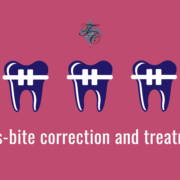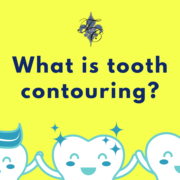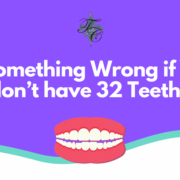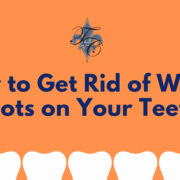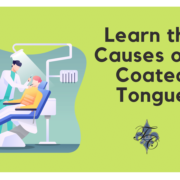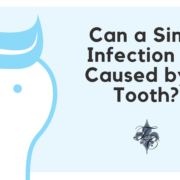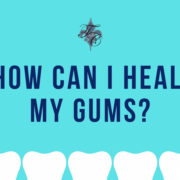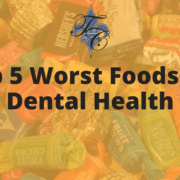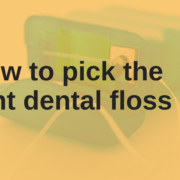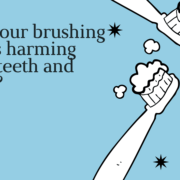Cross-bite correction and treatment
A cross-bite is when your teeth are out of alignment. It is where your lower teeth will be outside of your top row of teeth. Cross-bite can make an individual feel self-conscious about their smile and other facial expressions. Let’s learn more about it.
What is a cross-bite?
In the simplest terms, a cross-bite occurs when your top teeth aren’t aligned with your bottom teeth. The clinical definition mentions tooth arches and jaw positions. No matter the cause, a cross-bite is essentially a misalignment. Cross-bites can occur from trauma, but most often, they are genetic. A cross-bite can specifically occur in children when their adult teeth grow before all of their baby teeth have a chance to fall out. It’s safe to say that if your parents had alignment issues, you might have them as well.
Anterior vs. Posterior
There are two kinds of cross-bites. An anterior cross-bite occurs when the front teeth on your top row fall behind the front teeth on your bottom row. This type of cross-bite is similar to an underbite. The second type of cross-bite is a posterior cross-bite. Posterior cross-bites occur when your top row of teeth falls inside your bottom row of teeth when you bite down. Luckily, both anterior and posterior cross-bites can be treated.
Cross-bite Correction and Treatment Options
Most dental professionals would agree that the best time to correct a cross-bite is as a child or teenager. There are treatments available for adults as well, but the earlier the cross-bite is detected and treated, the better. Most cross-bites are remedied by adjusting the teeth or jaw using orthodontic treatments and appliances.
Some treatment options that are available to correct cross-bites include:
– Maxillary Expander
– Removable expander
– Braces
– Surgery in extreme cases
Many orthodontic professionals utilize a combined therapy of expanders and braces. The expanders work to create the correct amount of space in between the teeth so that the bites are aligned properly throughout the entire mouth. In adults, sometimes a removable expander can be prescribed that is only worn at night. Each case is different and will require its treatment plan.
The best place to start is by talking to your dentist about cross-bite correction and treatment options available to you or your child. As we’ve mentioned, cross-bites that are left untreated can cause even larger health issues down the road.
How can fixing a cross-bite connection help you?
Getting your cross-bite connection fixed can help you in many ways. You will feel that your smile is even, and the face structure will be symmetrical. Most importantly, it can help you with chewing your food, and you can enjoy it in a better way.
Also, you won’t wear down enamel or chip a tooth since your chewing will become even. Moreover, fixing a cross-bite can also have a lasting effect and can help in the correction of your teeth. As a result, you can avoid complications in the future and save a lot of money going towards the dental bills in the future.
- Improper alignment of the teeth can cause various problems such as:
- Wearing down teeth unevenly
- Loss of enamel
- Become looser over time
Therefore, you should choose the best treatment options for cross-bite connection to avoid these complications.
Bottom Line: The Best Cross-bite Correction Treatment
If you are worried about your cross-bite connection, there are various treatment options available for you to choose. With the right dentist by your side, you can go through this process without any hassle.
Chauvin, DDS & Associates in Lafayette La is concerned about your smile! A cross-bite can affect your self-esteem as well as your oral health. We care about it all. If you’d like to learn more about how we can help you gain a perfect smile or restore your oral health, give us a call today at (337) 234-2186.

